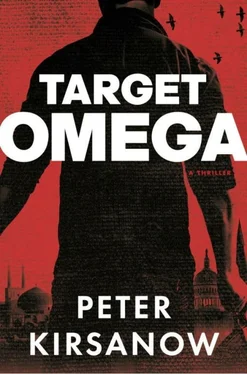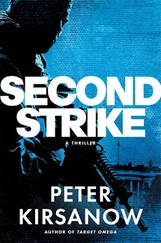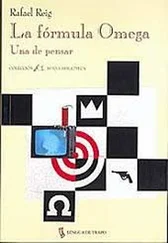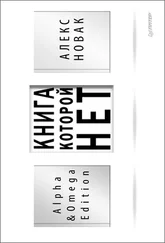Over the course of his career, Singer had seen the nature of intelligence gathering evolve, in large part due to advances in technology. Although he was privy to only a portion of Mossad’s impressive technological resources, he knew that the kind of capabilities presently available would’ve been considered science fiction when he first began his career. Nonetheless, Singer believed technology could never be a substitute for face-to-face human contact. The look in the informant’s eyes sometimes provided more information than a month’s worth of calls intercepted by satellites and decrypted by computers.
Singer believed there was one tool more valuable to a spy than any other. Most of the vital information he’d collected over the years came from its frequent use. When used correctly, it seldom failed, and it wasn’t as risky as blackmail, as hazardous as undercover work, or as unpleasant as coercive interrogation.
Singer believed that the most valuable intelligence he had acquired in his career was the result of the judicious payment of money. Information was a commodity like any other. It had a market value like any other. The trick was in being able to accurately appraise both the commodity and the person who possessed it. Come in too low and a higher bidder might snatch it from you. Come in too high and you might scare off the potential seller by causing him to think the commodity was more valuable than his life. Singer’s ability to appraise both the information and the seller was uncanny.
Singer had accurately taken stock of Mansur shortly after the Iranian Revolution. Both Singer and Mansur were young intelligence agents then. Mansur was a reasonable man with a new family. Singer was an accommodating man with a lot of money. Even better, a lot of American dollars. The two did business regularly. Mansur supplied useful, if not earth-shattering, information about the political strength of the Iranian regime, its alliances with foreign powers, its support of Hamas and Hezbollah, and the state of its weapons programs. The latter had been the focus of Singer’s concern the last five years.
One of their more recent collaborations had resulted in the identification of the chief of cyberwarfare for the Islamic Revolutionary Guard Corps. IRGC’s cyberwarfare division was believed to be responsible for the Shamoon virus that had damaged hundreds of Aramco’s computers. They had also hacked the systems of several US banks as well as a highly classified system of the US Navy. Shortly after Mansur had conveyed the chief’s identity to Singer, the cyberspy had been assassinated by a motorcyclist who had attached a magnetic bomb to the chief’s limousine while in transit.
Mansur might not have grown rich from the arrangement, but he had become very comfortable. And Singer, despite resembling a storybook elf, had become regarded as one of Mossad’s most effective agents.
Mansur’s participation in the arrangement was no longer fueled primarily by money. His wife had passed away after a brief illness a decade ago; his two sons were now physicians in London. He had few expenses and had amassed a sizable savings. Financial concerns had now been eclipsed by patriotic ones. So, for the last six months, Mansur had been supplying Singer with information concerning a joint project involving the Iranian military and the Russians. The information was nebulous at first, but judging from the description of the project’s location and the level of security surrounding it, both Singer and Mansur knew that it was a matter of extreme importance to the Iranian regime.
The project was being constructed under a small mountain in the North Alborz wilderness area. That fact alone suggested that it might be related to Iran’s nuclear program. It was well known that the Iranians had spread their program throughout numerous fortified underground facilities to shield it from preemptive strikes from the United States and Israel. There was an Iranian uranium enrichment plant at Natanz, another at Fordow, a conversion facility near Isfahan, and two nuclear plants at Bushehr that were supplied by the conversion facility at Ardakan and centrifuges at Tehran’s Sharif University.
Hamid Mansur was unable to confirm that the project was related to the nuclear program, but he reported that several vertical shafts — which he presumed were large freight elevators leading to the underground facility — had been constructed near the base of the mountain. Also, a railroad tunnel moved massive pieces of cargo into the mountain.
The vertical shafts were of particular concern. Singer could see no good reason the Iranians would need both a railroad tunnel and freight elevators to supply the facility. Satellite images revealed little, but Singer always believed it was best to assume the worst. And to him, the worst case was that the “vertical shafts” Mansur talked about were not freight elevators, but missile silos.
Singer had arrived in the early evening at the spot Mansur and he had agreed on during their last meeting. It was as Mansur had described: a copse of trees exactly five and a half miles east of the bus depot in Chalus, off the Tehran-Shomal Freeway. It stood at the edge of flat farmland along a seldom-used rural road. There were no dwellings within several miles. If anyone approached, they would be seen long before their arrival.
Singer had arrived on a Vespa motor scooter that he had rented in Chalus. In the distance, he could see another scooter approaching. It would take at least a few minutes to arrive. Singer passed the time leaning against one of the trees, smoking a Marquise.
Mansur stepped off of the scooter just as Singer stamped out the embers of his cigarette. The two shook hands and, speaking in English, got right to business.
“Chernin says the project is ahead of schedule,” Mansur said.
“When will it be ready?”
“He was not specific. But very soon. Days. A few weeks at the most. My friend, it appears you may be correct. A missile is involved, perhaps more than one. I do not know for sure. When Chernin drinks too much, he is sometimes difficult to understand.”
“Did he indicate what kind of missile?”
“No. Perhaps he did and I did not understand him. He said that the solid-fuel rocket caused fewer problems than what the North Koreans had been working with.”
“Liquid propellant, I presume?”
“He did not say.”
“What else?” Singer asked.
“He is looking forward to going home. He has no quarrel with the Israelis.”
“Did he say what he means by that?”
“No. Chernin never elaborates. And when he is asked a question about something he just said — if he’s asked for more information — he immediately stops talking and changes the subject, as if he realizes he has said too much. But the project clearly troubles him.”
“Did his driver wait for him this time?”
“No. Not for the last two times.”
Singer tapped another Marquise out of the pack and offered it to Mansur, who declined with a shake of his head. Singer lit it and inhaled deeply.
“What do you think?” Singer exhaled skyward.
“I believe, my friend, that the people who run my country are about to do something very stupid. I believe the Russians are stupid to help. Their stupidity, however, is exceeded by that of the West.”
“Hamid, for God’s sake, stop talking in Persian parables. Are you saying that the missile’s payload is nuclear?”
“Clearly, that is the objective. But I do not think that they are there yet,” Mansur answered.
“Why, then, does Chernin say the project is ahead of schedule? What does he mean?”
“I may be mistaken, of course, but I think he was referring to the missile, not the payload.”
“Hamid, you see, that’s where I think you’re wrong. I believe the objective is to have a functional, deliverable nuclear device. And once they have that, they intend to obliterate Israel.”
Читать дальше












